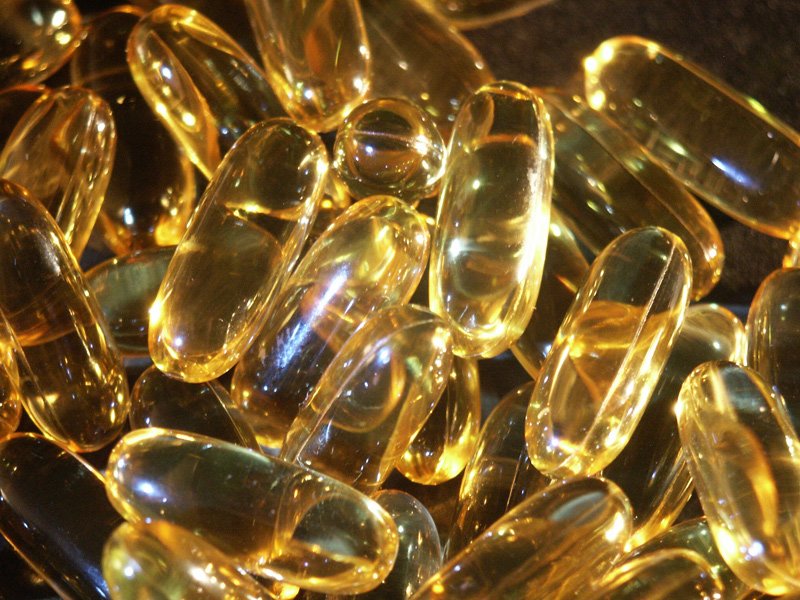Why You Need Fatty Acids
Some people choose food based on total calories, others opt for foods based on their macronutrient ratio (high protein, low fat etc.). Whatever you are looking for, don't take for granted the vital nutrients that you get from your food. Nutrients that keep you energetic, your bones strong, organs functioning, skin healthy, and more. Essential Fatty Acids are part of those nutrients that do a variety of very good things in our body.
What Are EFAs?
There are two essential fatty acids that your body cannot make and you must therefore consume from your diet or supplements. These are alpha linoleic acid (omega-3) and linoleic acid (omega-6).
Alpha Linoleic Acid
Alpha-linoleic-acid (ALA) is naturally found in flax, hemp seed, canola, soybeans and walnuts. ALA is broken down biochemically to form (in this order, the 3 major ones are mentioned):
- Stearidonic Acid (SDA) found in omega-3 rich soybean oil from GMO soy crops and naturally in black currant seeds.
- Eicosapentaenoic Acid (EPA) - see below
- Docosahexaenoic Acid (DHA) - both EPA and DHA are found in fatty fish such as salmon, mackerel, herring, halibut, lake trout, sardines and anchovies.

Both EPA And DHA Are Found In Fatty Fish Such As Salmon.
Linoleic Acid
Linoleic Acid (LA) is naturally found in safflower, sunflower, hemp, soybean, walnut, pumpkin, sesame and flax. After digestion, it is broken down biochemically to form (2 of the more commonly heard of ones mentioned):
- Gamma Linoleic Acid (GLA) - found naturally in borage oil, black currant seed oil, and evening primrose oil.
- Arachidonic Acid (AA) - found in meat and other animal products.

Linoleic Acid Is Naturally Found In Sunflowers.
What Do Efas Do?
That's one loaded question. Omega-6 fatty acids have gotten a bad rap lately. But, they are absolutely essential for our health. The problem is, with our typical American diet, loaded in oils, many of us are getting too many omega-6s and too few omega-3s. But, the guy or gal on a virtually fat free diet will notice symptoms of both omega-6 and omega-3 deficiency.
Both omega-6s and omega-3s play crucial roles throughout our body including: growth and development, brain functioning, skin health, hair growth, metabolism, reproductive system health and cell membrane integrity.
Here's where things get tricky though, some omega-6 fatty acids may promote inflammation whereas others may be beneficial for taming inflammation (GLA for instance). And, omega-3s are considered anti-inflammatory. And, specific omega-3s, namely EPA and DHA, are great for heart health whereas there is less research on ALA (though ALA is still considered beneficial for heart health).

Both Omega-6s And Omega-3s Play Crucial Roles Throughout Our Body.
We only need about 3-6 grams of linoleic acid to prevent signs of deficiency.
It is possible, that we may need more for optimal health, especially certain individuals depending on their state of health and diet intake.
The future of our health may involve manipulating our LA and ALA intake on an individual basis to promote health and minimize the likelihood of certain disease or health conditions. Right now, however, we are left with looking at our diet, trying to find out what is missing, and choosing the right foods to make up for the shortfall or supplementing accordingly.
Do you avoid oils and food made with oils? You may be low in omega-6s. If you don't eat fish or consume sources of ALA, you are likely low in omega-3s.
Why You Need Essential Fatty Acids
1. EPA And DHA Are Best If Consumed Directly
Sure, you can take LA and it may be converted into EPA and DHA but, this conversion process is inefficient. Only 8-21% of ALA makes its way to EPA and 4-9% makes its way to DHA (men are at the lower end of these percentages). If you want the health benefits of EPA and DHA, consume them directly either through fish or supplements.
2. Omega-3s Improve Joint Health
In vitro (i.e. in the lab) studies, suggest that omega-3s decrease the breakdown of cartilage tissue. And, omega-3s may slow and reduce inflammation associated with osteoarthritis.
3. Omega-3s May Decrease Pain.
Studies show that untrained men who took 1.8 grams of omega-3s per day experienced less delayed onset muscle soreness from eccentric exercise then those taking a placebo.

Omega-3s May Decrease Pain And Onset Muscle Soreness From Eccentric Exercise.
4. Omega-3s Improve Symptoms Of Rheumatoid Arthritis
This includes morning stiffness, tender or swollen joints and joint pain.
5. Omega-3s May Lower Heart Rate During Exercise
In a study examining olive oil vs. fish oil, fish oil helped participants decrease oxygen need and peak heart rate during exercise with no difference in performance. So, the heart had to work less and body required less oxygen for the workload. Another study in Australian Footballers showed that a large dose of DHA compared to an equivalent dose of sunflower oil improved cardiovascular functioning during exercise.
6. EPA And DHA Are Good For Your Heart
Your heart is your most important muscle and therefore, it makes sense to keep it as healthy as possible. This powerful duo is associated with a dose dependent decrease in triglycerides (fat in your blood), a slight decrease in blood pressure (this association is greatest in older adults with high blood pressure) and a decrease in risk of heart attack in those with a history of heart attack.

Your Heart Is Your Most Important Muscle And Therefore It Makes Sense To Keep It As Healthy As Possible.
Additional Tips
- Learn more about specific use of certain omega-6 fatty acids by checking out this page from the University of Maryland Medical Center.
- Learn more about specific omega-3 fatty acids by turning to this page.
Omega-6s and omega-3s are crucial to our health. Deficiencies in omega-6s are considered rare in those consuming Westernized diets. However, it is important to take a close look at what you eat now and your overall health and consider if you should be taking omega-6s or omega-3s or both. As always, check with your physician prior to taking any supplement. If you are on blood thinners, do not take EFAs (talk to your physician first)!
References:
- Complete Food and Nutrition Guide. American Dietetic Association.
- John Wiley & Sons, Inc. 2006.
- Proc Nutr Soc 2002;61(3):381-9.
- Arthritis Rheum 33:305-315, 1990.
- Am J Clin Nutr 2006;83(6): S1505-1519S.
- FASEB, #688.8, San Diego, CA, April, 2005.
- Clin J Sport Med 2009;19(2):115-9.
- J Cardiovasc Pharmacol 2008;52(6):540-7.
- J Sci Med Sport 2009;12(4):503-7.
